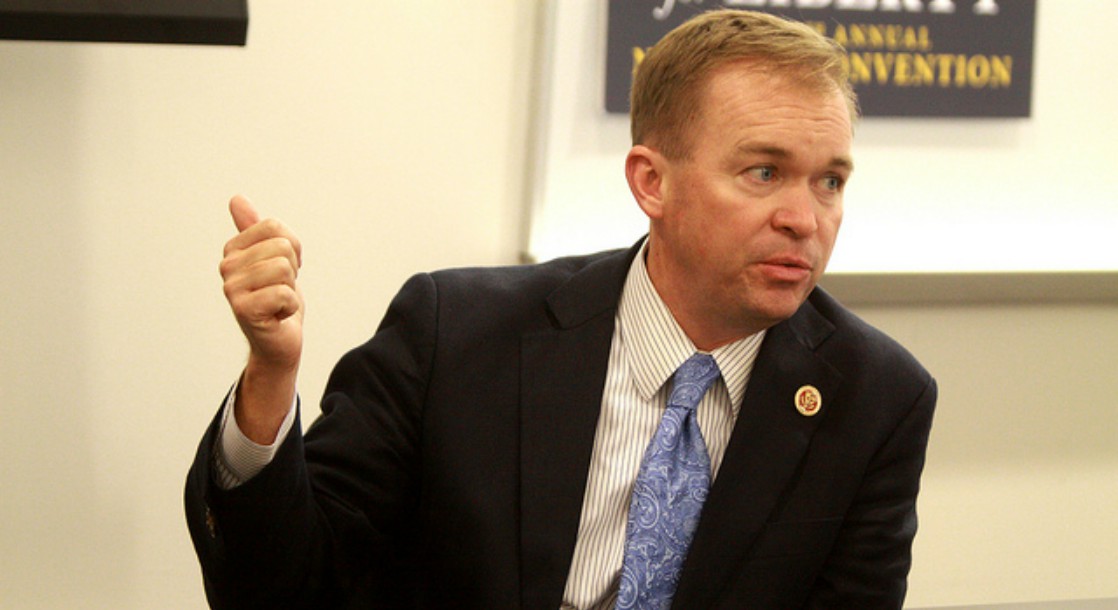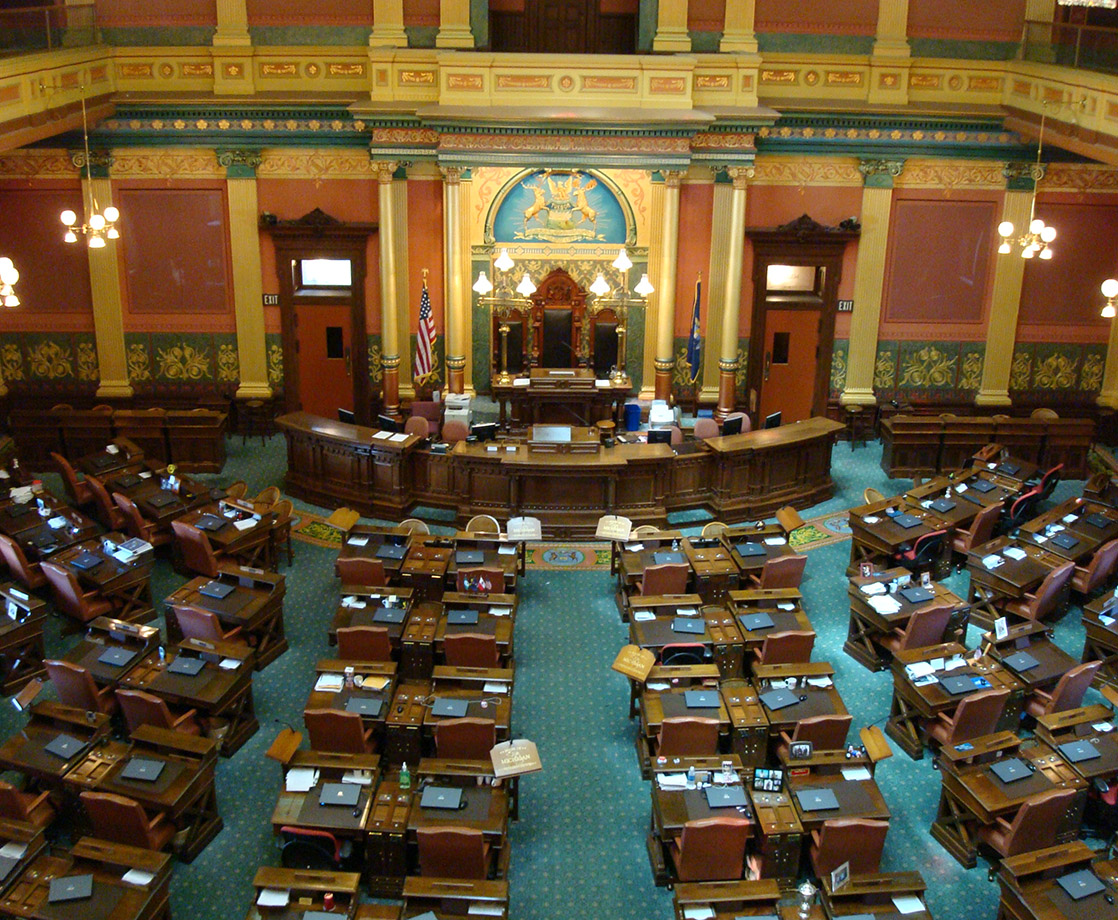Lead photo via Flickr user Gage Skidmore
Here at MERRY JANE we’re convinced that the world revolves around cannabis. From politics to culture, civil rights to economics, you can find keef dusted across every facet of modern life. But in these increasingly divided times, where natural disasters go damn-near ignored for two months and Twitter fingers have almost literally become trigger fingers, it's become increasingly important to highlight the most pressing news outside of the cannabis space. In a bi-weekly round-up MERRY JANE will break down the stories making waves in media, politics, technology, and culture — keeping you up to date on what’s making our world tick. Here's what you Need To Know.
Since the day that Donald Trump stepped into the Oval Office and took over as leader of the free world, he’s spent the majority of his time either trolling the American public on Twitter, or tailoring the federal government even further towards the favor of gigantic corporations and their billionaire executives.
So when the president tweeted out “The Consumer Financial Protection Bureau, or CFPB, has been a total disaster as run by the previous Administrations pick. Financial Institutions have been devastated and unable to properly serve the public. We will bring it back to life!” sandwiched in between all caps insults towards Time Magazine and CNN late last week, it understandably flew over the heads of most Americans.
The Consumer Financial Protection Bureau, or CFPB, has been a total disaster as run by the previous Administrations pick. Financial Institutions have been devastated and unable to properly serve the public. We will bring it back to life!
— Donald J. Trump (@realDonaldTrump) November 25, 2017
In that foreshadowing, though, Trump regurgitated the same tactic he’s used to try and rip healthcare from the hands of millions of Americans and cut taxes for the wealthy: playing overeager butler for billionaires, under the thinly veiled guise of championing the middle class. Like those other acts of corporate fellatio, Trump is insistent that free market handouts will somehow make their way to everyday consumers — a hypothesis long disproven in the decades since Reagan’s original trickle-down plan crashed and burned in the ‘80s.
Since Trump’s first mention of the CFPB five days ago, the independent agency responsible for holding financial institutions accountable in the wake of the 2008 financial crisis has gone through a public leadership battle, a federal court ruling, a complete halt to all of the agency’s current actions and, yes, even more tweets from the president.
To break down exactly what the CFPB does, how and why Trump is trying to bury it, why you should care and what this means for our future, we’ve compiled a series of deep dives from around the web. This is what you need to know about the Consumer Financial Protection Bureau.
For starters, what is the Consumer Financial Protection Bureau, and why is it so important?
Let’s hop in our Delorean and take a trip back in time to the end of the aughts, when America’s grand plans for ‘Hope’ and ‘Change’ were being rudely interrupted by the subprime mortgage crisis, daily foreclosures, and the most expansive recession since the Great Depression. Between Wall Street bailouts and golden parachutes for CEOs, the CFPB was established, with significant work from Senator Elizabeth Warren, as an independent federal agency responsible for weeding out criminal lenders and predatory banking institutions — a key piece of the 2010 Dodd–Frank Wall Street Reform and Consumer Protection Act’s legislative safeguards to stop greedy bankers from taking advantage of the American consumer.
Fast forward seven years, and the CFPB has done tremendous work to protect Americans from some of capitalism’s more egregious acts, forcing predatory banks and mortgage lenders to return some $12 billion back to consumers and standing in the way of the industry’s continued attempts to defraud and take advantage of their customers.
Now, in an attempt to climb the political ranks and return to his hometown of Ohio, former CFPB director Richard Cordray stepped down from his position to run for governor of the Buckeye State, and last week named one of his aides, Leandra English, to lead the consumer protection bureau, setting up the Obama-era deputy to take over in the agency’s continued investigations into below-board businesses like Wells Fargo, Zillow, and the nation’s constantly expanding for-profit student loan industry.
That’s where Trump comes in.
Like his support for ending net neutrality, President Trump has a convenient habit of confusing corporate concessions with consumer freedom.
Using his executive powers in the wake of Cordray’s step down, Trump chose to ignore the internal decision to promote English and publicly appointed White House budget director Mick Mulvaney as acting director of the CFPB.
In addition to breaking the Bureau’s deliberate independence from the executive branch, Mulvaney has expressed his public displeasure with the CFPB for some time now, telling reporters on multiple occasions that the agency is “trampling on capitalism” and should be disbanded altogether.
Not ready to cede power to the other side of the aisle, both English and Mulvaney showed up to CFPB headquarters this week with the intended goal of leading the Bureau. English announced that she would continue to act as Cordray intended, while Mulvaney made headlines by bringing a box of donuts to the agency’s preemptive funeral, mandating to CFPB employees that “Anything that’s in the pipeline stops.”
Understandably flabbergasted by the executive decision to doom the Bureau, English filed a lawsuit Sunday night before Monday’s public power struggle, arguing through CFPB litigator Deepak Gupta that the agency’s succession rules clearly support Cordray’s ability to name a temporary successor and that Mulvaney’s continued role as Trump’s budget director should disqualify him for the CFPB gig.
But, as is the problem with increasingly partisan politicians serving in supposedly neutral federal positions, U.S. District Judge Timothy Kelly, a Trump appointee, was tapped to preside over the presidential power lawsuit, making a preliminary decision on Tuesday to uphold the president’s actions, handing the office to Mulvaney for the time being.
After yesterday’s initial court decision, White House spokesperson Raj Shah released a statement doubling down on the Trump administration’s insistence that allowing banks and mortgage houses to rip off consumers is somehow helpful for everyday Americans.
“It’s time for the Democrats to stop enabling this brazen political stunt by a rogue employee and allow Acting Director Mulvaney to continue the Bureau’s smooth transition into an agency that truly serves to help consumers,” Shah wrote.
Now that Mulvaney is armed with the support of a federal judge for his next post-donut shop press conference, what will become of the CFPB and the consumer protections they provide?
First, it’s important to remember that Mulvaney is a temporary appointee, and that eventually, Trump will need to pick a permanent CFPB director, who will need to be approved by the Senate before assuming the position.
Until then, Mulvaney will run into the challenge of running two federal agencies at the same time, as the budget honcho is still responsible for overseeing $4 trillion in federal funds and leading the White House’s Office of Management and Budget.
And while Mulvaney has already started flexing his newfound CFPB power to freeze hiring and cut the Bureau’s budget, Daniel Hemel stresses in The Atlantic that he doesn’t have the power to fire the rest of the agency’s more than 1,700 employees without merit-based cause, leaving the overwhelmingly liberal consumer watchdogs to continue their necessary work, no matter who’s at the helm.
“At the end of the day, President Trump will get to decide who directs the CFPB,” Hemel writes. “But that director may soon discover that being in charge is not always the same as being in control.”
If, like us, you’re not content with watching Trump and Mulvaney attempt to dismantle America’s front line in the fight against predatory capitalists, you can also support nonprofit consumer advocacy groups like the Americans for Financial Reform and Consumer Watchdog to push for finance industry oversight outside of the federal government.











